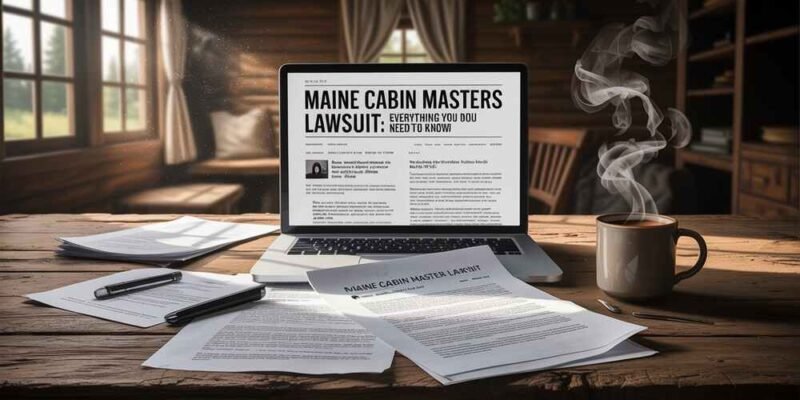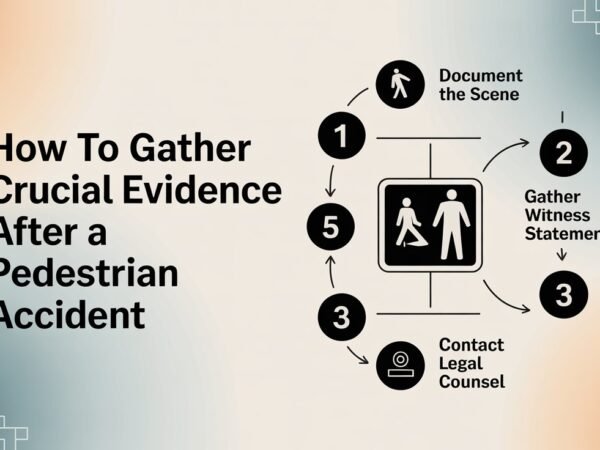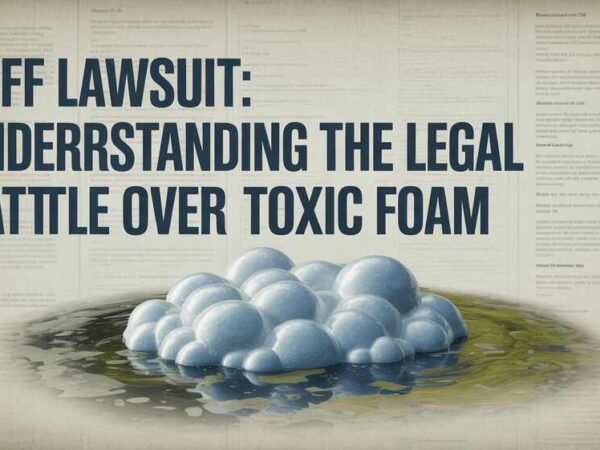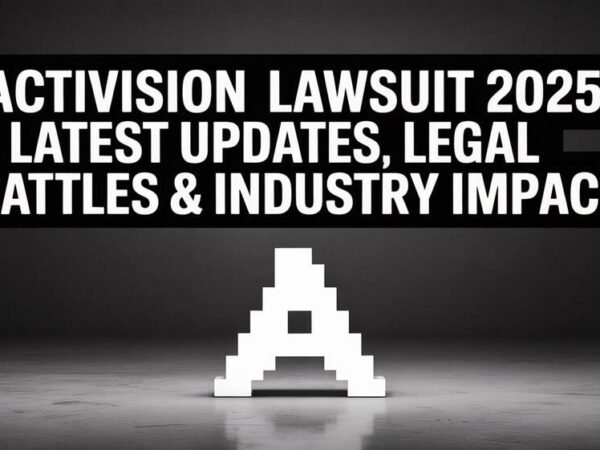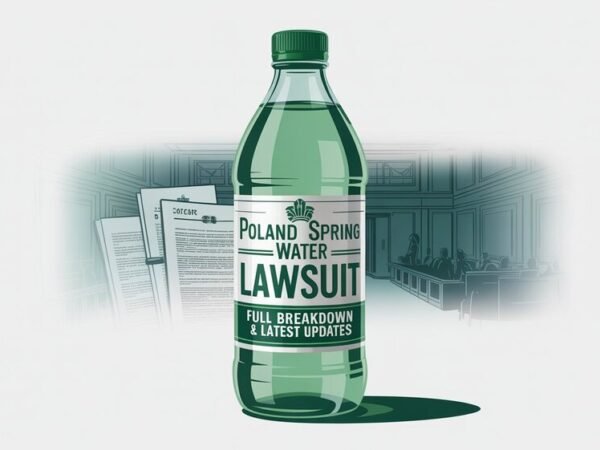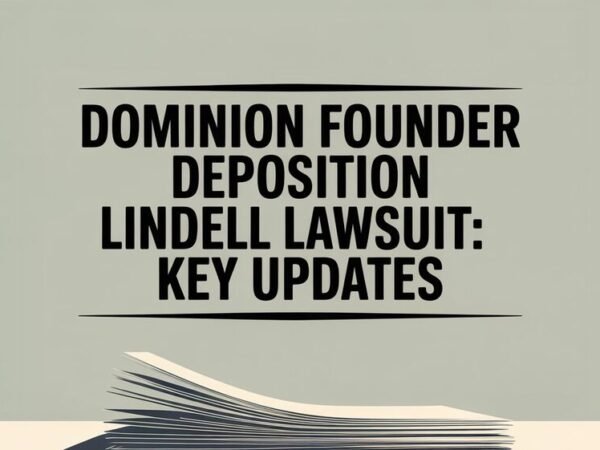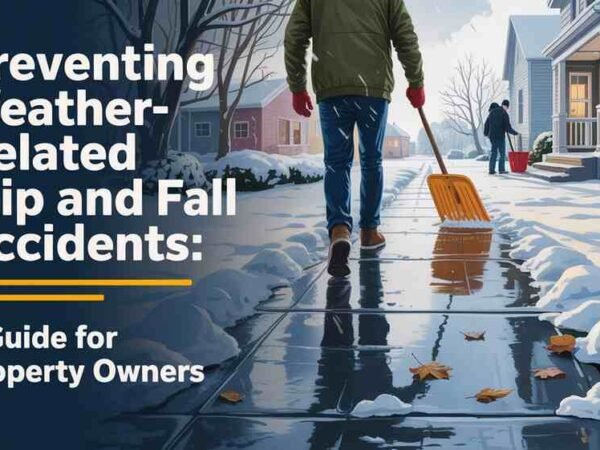What Is the Maine Cabin Masters Lawsuit?
“Maine Cabin Masters” is a popular reality television show that has garnered a loyal fan base for its heartfelt renovations of rustic cabins in Maine. The show follows a tight-knit team led by Chase Morrill, along with his sister Ashley Morrill and her husband, Ryan Eldridge, as they transform aging cabins into charming retreats. Produced by Kennebec Cabin Company, the program emphasizes craftsmanship, resourcefulness, and a love for Maine’s natural beauty. However, in recent years, the show and its affiliated business have found themselves under legal scrutiny, leading to what is now widely referred to as the “Maine Cabin Masters lawsuit.”
The lawsuit centers primarily on alleged violations of environmental safety regulations, particularly concerning lead paint removal and renovation practices. These legal issues have drawn public attention not only because of the show’s popularity but also because of the broader implications for renovation safety standards and contractor accountability in the industry.
Who Filed the Lawsuit and Why?
The primary legal action against the Maine Cabin Masters was initiated by the U.S. Environmental Protection Agency (EPA). According to official documents, the EPA alleged that Kennebec Property Services, LLC—the company behind the show—violated federal lead safety standards during several renovation projects. Specifically, the charges stemmed from a lack of compliance with the Lead Renovation, Repair, and Painting (RRP) Rule, a federal regulation designed to protect the public from lead-based paint hazards in homes built before 1978.
The EPA’s complaint focused on several instances where the company allegedly failed to use certified renovators and did not provide the required educational materials to homeowners. These failures posed potential health risks, especially to children and pregnant women, who are most vulnerable to the harmful effects of lead exposure. The case underlined the importance of strict adherence to safety standards, especially in public-facing renovation projects.
Timeline of Events Leading to the Lawsuit
The legal proceedings surrounding the Maine Cabin Masters lawsuit did not emerge overnight. The EPA began its investigation after multiple renovation projects conducted between 2020 and 2021 were flagged for non-compliance with federal guidelines. These projects, located in various parts of Maine, involved older cabins that were likely to contain lead-based paint.
By mid-2022, the EPA had gathered sufficient evidence to bring formal allegations against Kennebec Property Services. In October 2022, the agency announced a settlement agreement with the company. This public disclosure brought the matter to national attention, especially among fans of the show and home renovation enthusiasts.
Core Legal Allegations
Violation of Lead-Safe Renovation Rules
One of the central allegations in the Maine Cabin Masters lawsuit was the improper handling of lead-based paint. The EPA claimed that multiple renovation projects failed to follow the necessary protocols for containment, removal, and disposal of lead-contaminated materials. This included not using protective sheeting, failing to post warning signs, and neglecting to train and certify renovators properly.
Failure to Maintain Proper Certifications
In addition to unsafe practices, the company was accused of employing workers who lacked the required Respiratory Protective Equipment (RP) certification. The law mandates that all renovation firms working on pre-1978 homes be certified by the EPA and that they use certified renovators to oversee projects. The company’s failure to comply with these rules further compounded the seriousness of the violations.
Client Contract Disputes or Delays (if applicable)
While the EPA’s charges were the most significant legal challenges, there have also been isolated reports of customer dissatisfaction related to project delays or miscommunication. However, these claims have not escalated into formal lawsuits and remain speculative compared to the federal case.
Official Response from Maine Cabin Masters
Following the public release of the lawsuit details, the Maine Cabin Masters issued a statement acknowledging the issues and pledging to improve compliance. The team emphasized that they had already taken steps to become fully certified and had implemented new training programs to ensure all staff were aware of federal safety requirements.
The statement also included a commitment to transparency and education, aiming to utilize the show’s platform to promote lead-safe renovation practices. This proactive approach helped to soften public criticism and maintain viewer trust.
Legal Outcome and Settlement Details
The lawsuit concluded with a settlement agreement rather than a protracted court battle. Under the terms of the settlement, Kennebec Property Services, LLC agreed to pay a civil penalty of $16,500. More importantly, the company committed to future compliance with EPA standards and decided to educational outreach initiatives.
One unique aspect of the settlement was the stipulation that the Maine Cabin Masters integrate lead safety information into future episodes and their podcast, “From the Woodshed.” This clause not only addressed the legal concerns but also turned the incident into a teachable moment for a broader audience.
Impact on the Show and Its Reputation
Despite the legal troubles, the Maine Cabin Masters show has largely retained its fan base. The team’s transparency and willingness to address issues head-on contributed to public goodwill. However, the incident has left a lasting mark, reminding viewers that even beloved television personalities must adhere to the law.
The show has since incorporated more safety features and compliance checks into its workflow. Behind the scenes, new training sessions and certification renewals are now part of the standard operating procedures. These changes have not only helped rebuild the show’s credibility but also served as a benchmark for others in the home renovation industry.
What This Means for Homeowners and Contractors
The Maine Cabin Masters lawsuit serves as a critical reminder for both homeowners and contractors. For homeowners, it underscores the importance of verifying that renovation professionals are certified and knowledgeable about lead safety. For contractors, it highlights the legal and ethical responsibilities associated with renovation projects, particularly when working with older structures.
The case also emphasizes the importance of proper documentation, regular compliance checks, and ongoing education. Contractors who overlook these aspects not only risk legal action but also endanger public health. By learning from this high-profile example, industry professionals can avoid similar pitfalls and elevate their standards of practice.
Public and Industry Reactions
Reactions to the lawsuit were mixed but largely constructive. Fans of the show expressed disappointment but appreciated the team’s accountability and the corrective actions taken. Industry experts viewed the case as a wake-up call, emphasizing that visibility does not exempt a company from regulatory oversight.
Several building associations and trade groups have since highlighted the Maine Cabin Masters case in workshops and educational materials. It has become a prime example of how regulatory lapses, even when unintentional, can lead to significant legal and reputational damage.
Future of Maine Cabin Masters Post-Lawsuit
Looking forward, the Maine Cabin Masters appear committed to learning from their past mistakes. The show has been renewed for additional seasons, and the team continues to engage with fans through online content and live appearances. Legal monitoring remains in place to ensure ongoing compliance, but the worst appears to be behind them.
The experience has ultimately made the show stronger and more conscientious. With increased awareness and a renewed focus on safety, the Maine Cabin Masters are poised to continue their mission of preserving Maine’s rustic charm—this time with a sharper eye on legal and environmental responsibility.
Do Read: Dominion Founder Deposition Lindell Lawsuit: Key Updates


